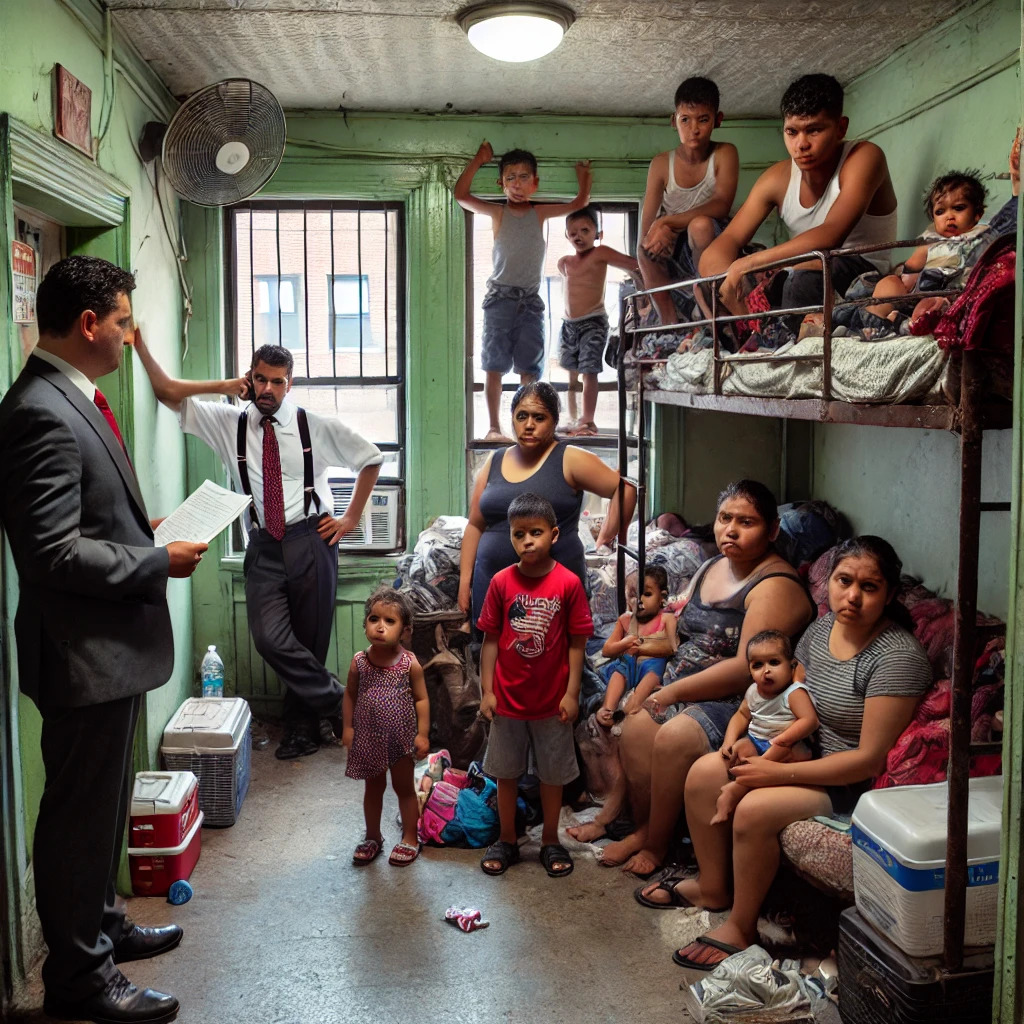In a move that has left millions of New Yorkers reeling, the city council has introduced a controversial new bill requiring landlords to provide air conditioning units for all rental apartments. While the measure may seem like a win for tenants sweltering in the city’s notoriously hot summers, critics argue that this mandate could spell disaster for both renters and landlords alike.
New York City, already in the grip of its worst housing crisis in 50 years, is now facing the reality that rents, which are already sky-high, are set to climb even further. The new requirement comes at a time when rent-stabilized apartments, the lifeline for many low and middle-income families, are becoming unaffordable. Some 2 million New Yorkers learned recently that they will face higher rents starting October 1st, with many fearing they could be pushed out of their homes.
The bill, introduced by City Councilman Lincoln Wrestler, aims to ensure that all tenants have access to air conditioning, just as landlords are required to provide heating in the winter. While the idea of keeping apartments cool in the summer sounds appealing, the financial burden it places on landlords could be catastrophic. Many landlords argue they are already operating at a loss due to relentless fees, utility costs, and taxes imposed by the city. The added expense of installing and maintaining air conditioning units could force them to raise rents even more, making already unaffordable apartments completely out of reach for many.
The situation has sparked outrage among tenants and landlords alike. Renters, already trapped in tiny apartments they can barely afford, are now facing the prospect of even higher costs. Landlords, on the other hand, argue that they cannot absorb the added expenses without passing them on to tenants. The result? A vicious cycle where rents keep rising, and both landlords and tenants find themselves in an impossible situation.
Adding to the complexity of the issue is the fact that many of these new air conditioning units would likely be cheap, inefficient, and prone to breaking. This could lead to further maintenance costs and headaches for landlords, who are legally required to keep all appliances in working order. The potential for increased carbon footprints due to the widespread use of air conditioning units also raises environmental concerns, further complicating the debate.
Critics argue that instead of imposing new mandates on landlords, the city should be focusing on ways to lower rents and increase housing availability. With New York City’s vacancy rate at its lowest in decades, many people feel trapped in apartments they can’t afford, with no options to move to more affordable housing. The rising cost of living, coupled with stagnant wages, has left many New Yorkers struggling to make ends meet.
As the rent crisis in New York City deepens, the question remains: Is this new air conditioning mandate really the solution tenants need, or is it just another layer of bureaucracy that will make life in the city even harder? With protests already breaking out and tensions running high, it’s clear that the city’s leadership will need to carefully consider the long-term implications of this bill.

